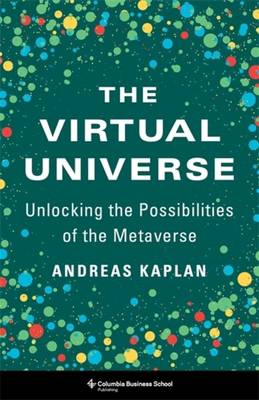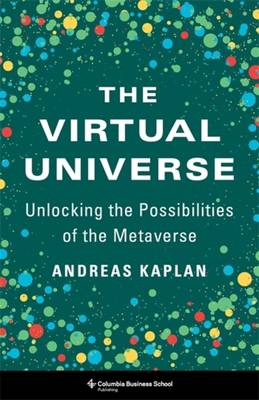
Bedankt voor het vertrouwen het afgelopen jaar! Om jou te bedanken bieden we GRATIS verzending (in België) aan op alles gedurende de hele maand januari.
- Afhalen na 1 uur in een winkel met voorraad
- In januari gratis thuislevering in België
- Ruim aanbod met 7 miljoen producten
Bedankt voor het vertrouwen het afgelopen jaar! Om jou te bedanken bieden we GRATIS verzending (in België) aan op alles gedurende de hele maand januari.
- Afhalen na 1 uur in een winkel met voorraad
- In januari gratis thuislevering in België
- Ruim aanbod met 7 miljoen producten
Zoeken
€ 38,95
+ 77 punten
Omschrijving
Will we one day inhabit virtual worlds? From the buzz around Second Life in the early 2000s to Mark Zuckerberg's much-hyped quest for the metaverse, there seems to be a clear pattern. After being touted as revolutionary, virtual worlds fail to meet expectations and fade into obscurity. Yet the dream of an immersive, independent, and interconnected virtual social universe still has the potential to transform the economy, reshape society, and profoundly affect the future of humanity.
This book contends that despite shifting trends, the virtual universe remains crucial to the technology of tomorrow--and might arrive sooner than we think. Through vivid examples and detailed case studies, Andreas Kaplan, a pioneering researcher of virtual worlds since the early 2000s, provides a comprehensive examination of the metaverse and its far-reaching implications. He delves into key technologies such as artificial intelligence, blockchain, and extended reality and discusses ethical issues around privacy, identity, and governance. Kaplan examines business models, digital ownership, and corporate strategies alongside applications spanning marketing, research and development, human resources, and supply chain management. The book concludes by contrasting potential futures, from utopian promise (the Petaverse) to dystopian peril (the Metaworse) and everything in between. Written in an engaging, reader-friendly style, The Virtual Universe goes beyond the hype--and the doubting--to uncover the true potential of the metaverse.Specificaties
Betrokkenen
- Auteur(s):
- Uitgeverij:
Inhoud
- Aantal bladzijden:
- 248
- Taal:
- Engels
Eigenschappen
- Productcode (EAN):
- 9780231217682
- Verschijningsdatum:
- 12/05/2026
- Uitvoering:
- Hardcover
- Formaat:
- Genaaid
- Afmetingen:
- 140 mm x 216 mm

Alleen bij Standaard Boekhandel
+ 77 punten op je klantenkaart van Standaard Boekhandel
Beoordelingen
We publiceren alleen reviews die voldoen aan de voorwaarden voor reviews. Bekijk onze voorwaarden voor reviews.









